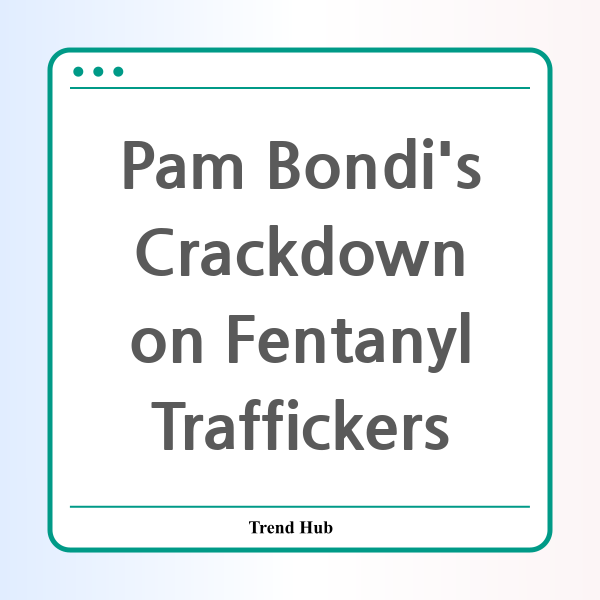* This website participates in the Amazon Affiliate Program and earns from qualifying purchases.

Have you ever wondered how the U.S. government is tackling the escalating fentanyl crisis that has been ravaging communities across the nation? Recently, U.S. Attorney General Pam Bondi held a press conference announcing a major federal operation that has led to the arrest of a drug trafficking leader linked to one of the most notorious drug cartels in the world, the Sinaloa Cartel.
The bust unfolded in Salem, Oregon, where authorities arrested Heriberto Salazar Amaya, a 36-year-old man who is believed to be the head of a multi-state drug trafficking operation. This operation is tied to the notorious Sinaloa Cartel, known for its brutal tactics and expansive drug trafficking network that spawns across the globe.
According to federal officials, the investigation, which spanned over 55,000 hours, resulted in the seizure of millions of dollars in cash, luxury jewelry, and high-end vehicles. Attorney General Pam Bondi emphasized the intent to impose severe penalties on drug traffickers like Salazar Amaya and to ensure they remain incarcerated in American prisons. She stated, "He's the leader. He's the number one guy, and I want them to stay in our prisons as long as possible." This strong stance illustrates the government's commitment to combating the influx of illegal drugs.
This operation is deemed one of the largest fentanyl busts in the DEA's history, marking a battlefield victory against a network described as "terrorist-backed" that is responsible for pumping lethal substances into American cities. Notably, Salazar Amaya is facing a dozen criminal charges, including conspiracy to distribute fentanyl, violating U.S. immigration laws, and other related offenses. The serious implications of these charges highlight the gravity of the situation at hand.
It’s important to recognize that the Sinaloa Cartel does not operate under a single leadership structure; rather, it encompasses several factions, including the sons of El Chapo, and various other criminal organizations. While Salazar Amaya was just one cog in this massive wheel of drug trafficking, his arrest signals a significant blow to the cartel’s operations in the U.S.
In the wake of such arrests, discussions around sanctuary state laws have intensified. Some politicians, including Oregon House Republican Leader Christine Drazan, have called for a reevaluation of these laws, arguing that they could hinder law enforcement efforts to address the fentanyl crisis effectively. Drazan has stated, "Today should be a wakeup call that if we don’t modernize our sanctuary state laws, Oregon will continue to be a haven for dangerous criminals instead of taking them off our streets.”
As the fentanyl crisis continues to surge, the federal government’s crackdown on drug trafficking rings is essential to safeguarding communities. The case of Pam Bondi and Heriberto Salazar Amaya serves as a reminder of the ongoing challenges faced in the fight against drug trafficking, particularly with dangerous substances like fentanyl flooding the market. It is critical for law enforcement agencies, local governments, and communities to rally together, implementing effective strategies and support systems to combat this epidemic.
In conclusion, while the arrest of leaders in drug trafficking organizations like the Sinaloa Cartel is a crucial step in tackling the opioid crisis, it also raises broader questions about immigration policy, public safety, and community health. With ongoing investigations and operations, the hope is that more substantial and lasting changes can be made to protect vulnerable populations from the devastation caused by illicit drugs.
* This website participates in the Amazon Affiliate Program and earns from qualifying purchases.